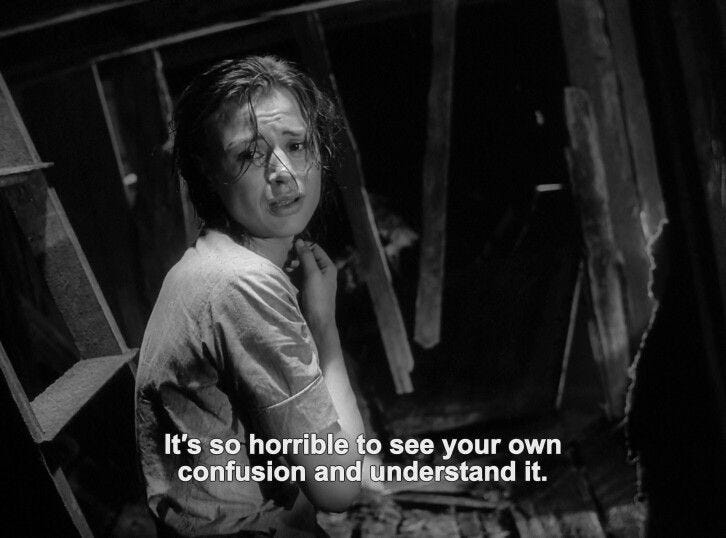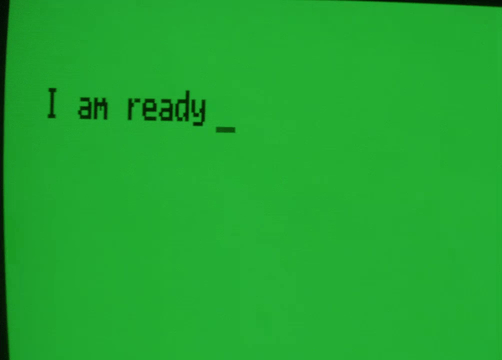“Do I contradict myself?
Very well then I contradict myself,
(I am large, I contain multitudes.)”
- Walt Whitman
Language is not necessarily arbitrary as a whole from my ever-shifting vantage point. I see in retrospect how when I am subsumed in a tidal wave of unresolved emotions - the tunnel vision makes the perspective narrower; anger from the unresolved sadness becomes the catalyst for half-baked, irrational conclusions. How uncritical! Therefore, I must devote more care and attention to something as important as my relationship with "language".
If form follows function, then language appears to me as something appearing formless, defined parameters being porous. It is a tool I have yet to learn how to wield responsibly. Where does this perception come from? My first inclination is the fact that I am a child of immigrants. Without assuming the experience of all immigrants with English as a second language, I will consider what I perceive to be the patterns and history of how my parents came to learn and deploy this language that was and is foreign to them.
Anecdotally, I know that my parents initially began acquiring the basic concepts of American English from reading children’s books such as Curious George, or their ESL classes in their public schools. But if I want to be a bit more curious, I must pay attention to the context of their experiences. It is obvious my parents approach a foreign language like American English from a non-American perspective. And any linguist or anthropologist can tell you that no language or culture is necessarily one-to-one. Languages, like culture, help create the intangibles of our subjective experiences of the world. And there are nuances and differences in the world of my parents that differ from my own. I want to begin to know their world.
Because language is something to be sought after and acquired for them, it is that relationship with language, where it is some perpetually moving goalpost to pursue, that becomes mine as well. Essayist Durga Chew-Bose describes something similar in the pursuit of words to name a thing: where writing is something like groping around in the dark. I inherited their world in the home along with my own outside of it, and it is there where I started to notice the gaping wound scissioning further. “You can stay in the same place and still find ways to leave people.”, the Mike Mills film Beginners says.
Yet I can see myself in my parents when I see their attempts at critical reason or I ask them to repeat what I said to them in their own words; language looks like a bag of words that we must continually sift through, attempting to bridge the disconnect between what we mean and what we want to say. How painful it is to lack the fluency to animate a complex feeling! This is not to say that only immigrant families have this experience, but that in my particular case and I'm sure for others, things often get lost in translation and we continually miss each other. And just as language becomes the pursuit of aligning what we mean and want to say, I would like it to become a bridge between me and my parents' different worlds. My ignorance toward their world marks the precipice. And the wound was struck when I was born into a world separate yet infused with theirs, and continually attempted language can be the scar tissue.
If the foreignness of language implies countless attempts to articulate in a given conversation, therein lies embedded fear of failure. It is the fear of malapropism and its accompanying reaction, or not clearly saying what you mean that fuels the anxieties when my parents aren’t inclined to expand upon a particular emotion, only to lash out from discomfort. Or it is that anxiety that fuels my innumerable, insufferable requests for my friends to confirm that I am speaking clearly and not out of turn. Did I say that right?
Language appears complicated when there are conflicting functions and differing sets of standards in which language must fit. Because of this, language starts to become more ambiguous and less certain. But therein lies a secret within ambiguity. An awesome force that sees language as less of a set of structures, but rather a potentiality. On the podcast Hannah Arendt: Between Worlds, hosted by Arendtian scholar Samantha Rose Hill, there is an episode with architect Hans Teerds in which they discuss the shift of use-objects toward “useless” objects of consumption, and how moving back toward ambiguity shouldn’t be feared. Because to them, the ambiguity that a use-object can have contains equality. And the act of making use-objects, spaces, and even language more ambiguous is an act that recognizes its potential. What happens when words continually lose their significance, being carelessly consumed and disposable?
This is not to remove all parameters and standards of languages where suddenly everything becomes acceptable. But instead, it is a call to be more playful yet responsible with our words, to construct concepts that present extensions of altered, newer ways of being. Create your own syntax. “Develop your legitimate strangeness”, the poet René Char says. I still have work to do in learning the parameters and wisdom in utilizing language in a way that honors it, instead of the unrestrained and unorganized approach you see here. Did I do alright?
So here’s to continually acquiring new language, taking it for a test drive, working on your grammar, and going from there. Trust the process. It’s okay to be a beginner. I’ll try to meet you guys on the other side.
First image is from the film “Through a Glass Darkly”, directed by Ingmar Bergman.
The gif is from “Decalogue: I”, directed by Krzysztof Kieślowski.





